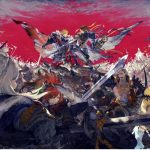God of War TV Series Producer Quits Due to Game’s Extreme Complexity
Amazon’s God of War TV Series Faces Major Setback as Key Producer Departs
The highly anticipated God of War TV series, a collaboration between Amazon Studios and Sony Pictures TV, has hit a major obstacle. Rafe Judkins, the key producer attached to the project, has officially stepped away from his role. Alongside him, two other prominent writers and producers, Hawk Ostby and Mark Fergus, have also exited the production team. Their departures have raised questions about the series’ direction and whether it will successfully make the transition from a beloved video game franchise to a compelling television adaptation.

Creative Differences and the Challenge of Adapting a Complex Storyline
Sources close to the production indicate that the key reason behind the team’s departure stems from creative differences and the immense challenge of adapting the God of War saga into a live-action format. Unlike other video game adaptations, which often have straightforward narratives, God of War is deeply layered, featuring intricate mythological themes, complex character arcs, and intense action sequences that pose major challenges in live-action storytelling.
According to reports, the script underwent several revisions before ultimately failing to meet Amazon’s expectations. The production team reportedly struggled to balance the game’s gritty, violent aesthetic with the need to create a series that would appeal to a broader audience beyond hardcore gamers. The immense lore and emotional depth of Kratos’ journey, spanning Greek and Norse mythologies, added further difficulties in crafting a cohesive television adaptation.
Cory Barlog Remains Committed to the Project
Despite these setbacks, Cory Barlog, the legendary creative director of Santa Monica Studio and the mastermind behind God of War (2018), remains attached to the project as an executive producer. His continued involvement offers a glimmer of hope for fans who worry about the authenticity of the adaptation. Barlog has played a crucial role in shaping Kratos’ modern evolution and has the unique expertise needed to guide the project in a direction that remains faithful to the original game’s vision.
Finding a New Creative Team: What’s Next for the God of War TV Series?
With Judkins, Ostby, and Fergus no longer part of the project, Amazon Studios and Sony Pictures TV are actively seeking new writers and producers to take over. The priority is to find a team that can successfully navigate the complexities of Kratos’ journey, staying true to the game’s core themes while making it accessible to new audiences.
The challenge remains formidable. The God of War franchise is one of the most critically acclaimed video game series of all time, renowned for its emotionally charged storytelling, spectacular action sequences, and rich world-building. Bringing that to life on the small screen will require a production team with the technical expertise and narrative depth to do justice to the source material.
The Broader Trend of Video Game Adaptations and Their Challenges
The God of War TV series is not the only video game adaptation facing hurdles. Many gaming franchises have attempted to transition to television and film, with varied degrees of success. Recent successes like HBO’s The Last of Us and Netflix’s Arcane demonstrate that video game adaptations can resonate with both gamers and general audiences when handled correctly.
However, other projects have struggled. The failure of certain game-to-screen adaptations often stems from inconsistent storytelling, misalignment with fan expectations, or studio interference that compromises the integrity of the original work. The God of War TV series appears to be at a crossroads, facing many of these same risks.
A Cancelled God of War Live-Service Game Adds to the Uncertainty
In addition to the struggles with the TV series adaptation, Sony recently scrapped an unannounced live-service God of War game, developed by Bluepoint Games. This decision follows a broader trend within the gaming industry, where multiple live-service projects have been struggling or failing due to market oversaturation and changing player preferences.
Sony’s decision to halt development suggests a shift in focus back toward single-player, narrative-driven experiences, which have traditionally been the strength of the God of War franchise. However, the cancellation raises questions about the overall strategy surrounding God of War’s expansion beyond traditional gaming experiences.
Will the God of War TV Series Survive the Turmoil?
Despite the setbacks, Amazon Studios and Sony Pictures TV have expressed their commitment to moving forward with the God of War TV adaptation. The franchise’s enormous fan base and strong brand recognition provide a compelling incentive for studios to continue investing in its live-action potential.
For the project to succeed, the next steps must be carefully executed. The right team must be brought in to handle the adaptation with respect, creativity, and authenticity. Casting choices, special effects, and writing quality will all be critical factors in determining whether the series can capture the epic scale and emotional weight of Kratos’ journey.
Conclusion: The Future of God of War Beyond Gaming
The departure of key producers and writers from the God of War TV series raises concerns about the project’s future, but it is far from doomed. With Cory Barlog still involved and Amazon Studios determined to move forward, there remains hope that the series can overcome its current challenges. However, the road ahead is not easy, and the final outcome will depend on whether the new creative team can successfully navigate the complexities of the God of War universe while satisfying both die-hard fans and new audiences.
The demand for high-quality video game adaptations is stronger than ever, and God of War has the potential to become one of the most successful projects in this space—if done correctly. Whether the series can rise to the occasion or fall victim to the same pitfalls as other failed adaptations remains to be seen. One thing is certain: the world is watching, and the stakes have never been higher.





















